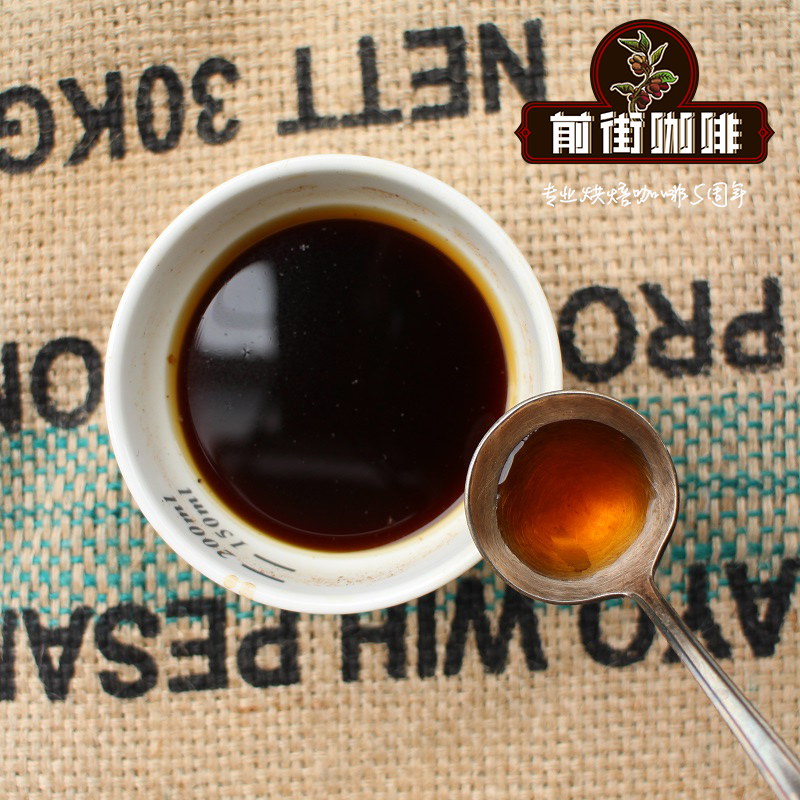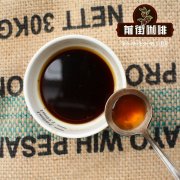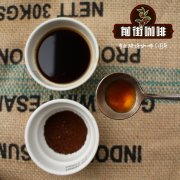Coffee tasters: learn how difficult it is for coffee tasters to know qgreder Coffee Q

Professional coffee knowledge exchange more coffee bean information please follow the coffee workshop (Wechat official account cafe_style)
In the catering industry, the general saying is that the chef determines the taste of the food, and the concept seems to be the same with fine coffee: the barista is the key to determining the final flavor of the coffee. In fact, this statement is not quite true. Compared with the chef, baristas can control fewer factors on the bar and can only present the flavor of a cup of coffee through extraction rate, time and dose. The formation of coffee flavor depends on the first link before brewing: roasting. However, if the potential flavor of coffee beans is mediocre, no matter how clever the baker can make them into amazing coffee beans. Therefore, for a good cup of coffee, its raw beans must have a lot of "potential" waiting to be discovered by bakers and baristas. The responsibility for identifying the hidden potential of farmers' hard-growing coffee beans falls on the Q Grader coffee cup tester.
Q Grader is the person who guards the quality of raw beans, using cupping to evaluate, grade and grade each bean at the export stage, so that other buyers of raw coffee have a basic concept of the flavor of beans, and then they can plan the corresponding baking methods to bring out the potential of beans. The Q Grader certification system is designed by CQI (Coffee quality Association) to evaluate the quality of exported coffee beans in a language commonly used in the industry. Due to the use of common evaluation language and standards to determine the quality and price of coffee, the price of coffee will be more transparent and fair, and there will be no justification. Since Q Grader also rates coffee ("boutique" for a score above 80), it also encourages farmers to grow better quality coffee to sell at a good price.
There are tens of thousands of baristas around the world, and Q Grader has only a few thousand. From this number, you can see how difficult it is to qualify. At first, the Q Grader certification system was only used for Arabica bean Arabica, but now it also covers Robusta Robusta, all because the high quality Robusta should be discovered and given the status of "boutique coffee".
So what does the Q Grader exam cover? Candidates must complete 20 tests within 6 days and can only obtain certificates if they pass all the tests. If you fail the test, you may require a retake within 6 days of the course, or a make-up exam within 18 months after the end of the course. The validity period of the Q Grader certificate is 3 years. Before the expiration of the certificate, students must take a correction course (Q Grader Re-Calibration Course) to extend the validity of the certificate.
These 20 tests include:
Coffee Comprehensive knowledge examination (1 test)
Sensory skills test (3 tests)
Olfactory skills test (4 tests)
Cup test skills test (4 tests)
Triangle cup test skill test (4 tests)
Organic acid control test (1 test)
Arabica Raw Bean grading Test (3 tests)
Grading test of Arabica baked beans (1 test)
Baking degree identification (1 test)
There is no end to learning, even in the relatively small field of boutique coffee, there is a myriad of knowledge waiting for people to absorb. Being able to pass the Q Grader qualification will prove that your skills in this field have improved to a higher level.
Important Notice :
前街咖啡 FrontStreet Coffee has moved to new addredd:
FrontStreet Coffee Address: 315,Donghua East Road,GuangZhou
Tel:020 38364473
- Prev

Coffee cup test main content scoring standard of coffee cup test
Professional coffee knowledge exchange more coffee bean information Please pay attention to the coffee workshop (Wechat official account cafe_style) nowadays there are more and more coffee lovers who attach importance to the taste of life, and for them, the cup test is an important part of tasting coffee. Whether they are roasters or baristas, before choosing beans, they must go through the cup test in order to select the good coffee beans more accurately.
- Next

Cqi Coffee tasters Coffee what does cqi mean? how to test the coffee tasters?
Professional coffee knowledge exchange more coffee bean information please follow Coffee Workshop (Wechat official account cafe_style) Coffee quality Association (Coffee Quality Institute, referred to as CQI), founded by SCAA in 1996, is an international non-profit organization dedicated to improving coffee quality and the living standards of coffee producers, the early name is the Fine Coffee Institute (Specialty C)
Related
- Beginners will see the "Coffee pull flower" guide!
- What is the difference between ice blog purified milk and ordinary milk coffee?
- Why is the Philippines the largest producer of crops in Liberia?
- For coffee extraction, should the fine powder be retained?
- How does extracted espresso fill pressed powder? How much strength does it take to press the powder?
- How to make jasmine cold extract coffee? Is the jasmine + latte good?
- Will this little toy really make the coffee taste better? How does Lily Drip affect coffee extraction?
- Will the action of slapping the filter cup also affect coffee extraction?
- What's the difference between powder-to-water ratio and powder-to-liquid ratio?
- What is the Ethiopian local species? What does it have to do with Heirloom native species?

